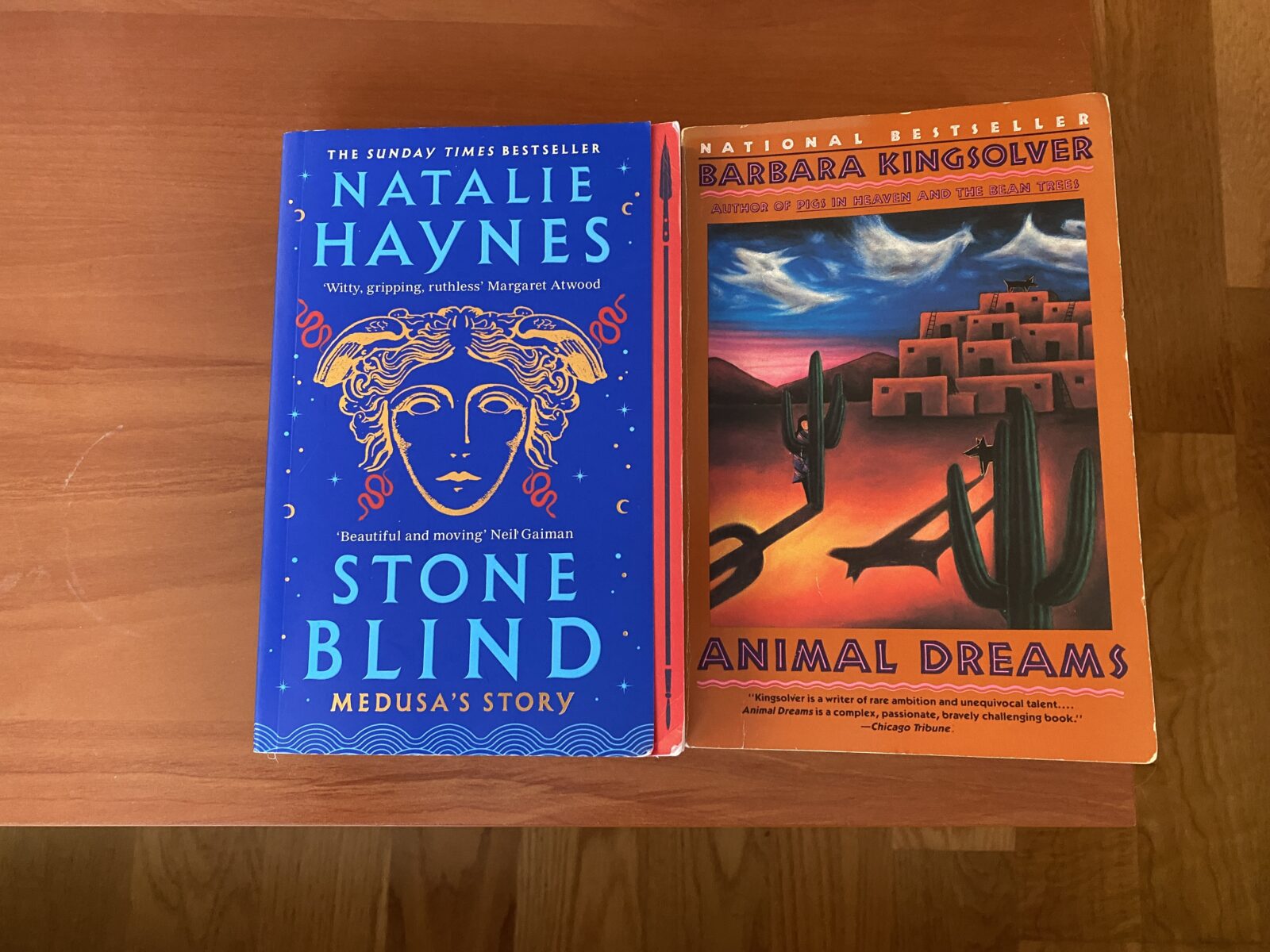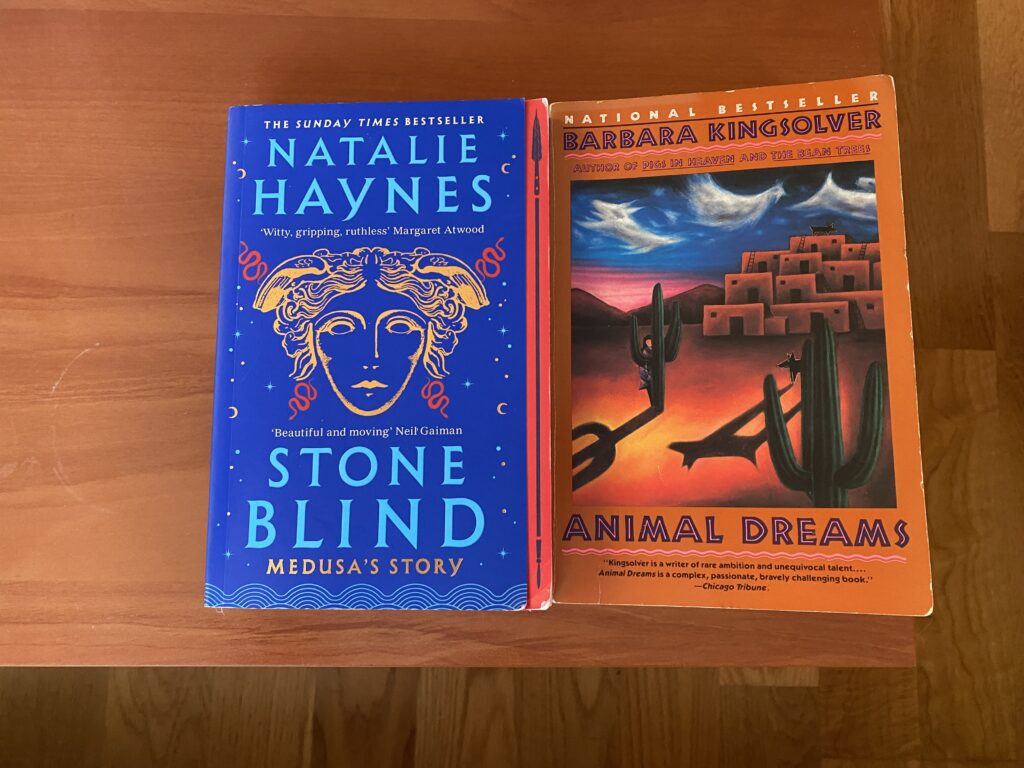Stone Blind, Natalie Haynes
Stone Blind claims to tell the story of Medusa, and I wish from the bottom of my heart (sorry not sorry for being dramatic) that I could say it fulfilled this claim. If by telling ‘the story of Medusa’ means that the reader learned about what happened to Medusa, and then the surrounding story of 20 other side characters, then mission achieved. But for me, this was disappointing, because there is hardly a person on this Earth (again, sorry not sorry for the drama) that does not know what happened to Medusa. What I wanted to know is who she was and how she felt—I think hoping for some character development is not a crazy wish, considering that the medium is a literal book with literal characters. The book seemed to focus much more on Athena and Perseus than it did on Medusa. I know I am being harsh, and maybe it is because of the affinity I feel for Medusa, but honestly, I was hoping for much more than what this book provides—Wikipedia could tell you what I learned from Stone Blind. Here’s to hoping that Madeleine Miller gives Medusa what she deserves—what she gave Circe in her novel of the same name from 2018.
Animal Dreams, Barbara Kingsolver
I seem to be striking out with the first couple books of 2024 (after my customary Twilight reread, that is), because Animal Dreams, while it was a good read and seemed well researched, flirted dangerously with the line of cultural appreciation and cultural appropriation. Kingsolver is obviously a white woman, and in this book chose to focus on characters of Mexican American and indigenous descent, such as the Navajo and Puebla peoples. The book is set in Arizona, in a small town to which the main character has returned to take care of her ailing father, and also features the main character’s sister, who has gone to Nicaragua to fight against American imperialism (which I did appreciate). Returning to my criticism though, I realize that Kingsolver seems to make this flirtation between cultural appreciation and appropriation a main feature of her writing. The Poisonwood Bible, anyone? Even the book she won her first Women’s Prize for, The Lacuna, told the story of Frida Kahlo from the perspective of a man! She just won the Women’s Prize again last year, this time for a novel set in poverty-stricken Appalachia—could it be the first time she chooses not to appropriate someone else’s culture for her novels? I wait with bated breath.

